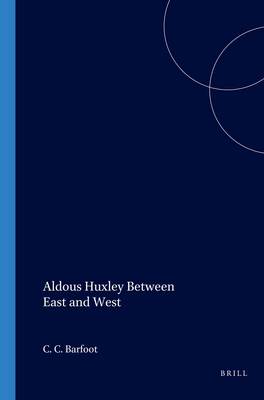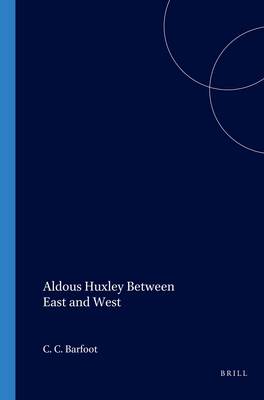
- Afhalen na 1 uur in een winkel met voorraad
- Gratis thuislevering in België vanaf € 30
- Ruim aanbod met 7 miljoen producten
- Afhalen na 1 uur in een winkel met voorraad
- Gratis thuislevering in België vanaf € 30
- Ruim aanbod met 7 miljoen producten
Zoeken
Aldous Huxley Between East and West
€ 117,95
+ 235 punten
Omschrijving
Although the title of this volume is Aldous Huxley between East and West, the order of the articles found within goes from West to East, which naturally imitates Huxley's own progress, especially since he went to the trouble of stepping out as far West as possible before starting for the East. Indeed one could argue that he was already on his way there before he left for California, a continuous journey, perhaps, since from the Californian shores of the Pacific the East is the further West. After the Introduction which places Huxley between East and West, the book starts with a consideration of Huxley's family connections, then goes onto his earliest fictions, his interest in science and the issue of modernity, and his experiments with drama and their inherent philosophical concerns. The poetry with which he began his writing career is then viewed as a link between his earlier Western self and his later Oriental interests, suggesting that the latter was always inherent in the former. A number of considerations of the Utopian themes in Huxley's middle and later fiction leads the volume to a climax with four articles surveying the foibles and the wisdom of Huxley's encounter with Eastern religious thought and philosophy, his misunderstandings, as well as ours, of what actually he had learned and wished to pass on to the Western world.
Specificaties
Betrokkenen
- Uitgeverij:
Inhoud
- Aantal bladzijden:
- 260
- Taal:
- Engels
- Reeks:
- Reeksnummer:
- nr. 37
Eigenschappen
- Productcode (EAN):
- 9789042013476
- Verschijningsdatum:
- 1/01/2001
- Uitvoering:
- Paperback
- Formaat:
- Trade paperback (VS)
- Afmetingen:
- 150 mm x 220 mm
- Gewicht:
- 462 g

Alleen bij Standaard Boekhandel
+ 235 punten op je klantenkaart van Standaard Boekhandel
Beoordelingen
We publiceren alleen reviews die voldoen aan de voorwaarden voor reviews. Bekijk onze voorwaarden voor reviews.










